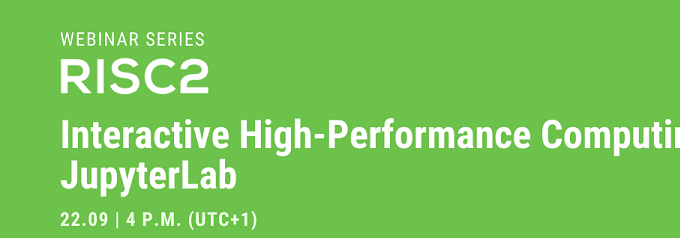Interactive High-Performance Computing with JupyterLab
Title: Interactive High-Performance Computing with JupyterLab
Data: September 22, 2022 | 4 p.m. (UTC+1)
Summary: Interactive exploration and analysis of large amounts of data from scientific simulations, in-situ visualization and application control are convincing scenarios for explorative sciences. Based on the open source software Jupyter or JupyterLab, a way has been available for some time now that combines interactive with reproducible computing while at the same time meeting the challenges of support for the wide range of different software workflows.
Even on supercomputers, the method enables the creation of documents that combine live code with narrative text, mathematical equations, visualizations, interactive controls, and other extensive output. However, a number of challenges must be mastered in order to make existing workflows ready for interactive high-performance computing. With so many possibilities, it’s easy to lose sight of the big picture. This webinar provides a compact introduction to high performance interactive computing.
Speaker: Jens Henrik Göbbert, Jülich Supercomputing Centre
Jens Henrik Göbbert graduated in mechanical engineering in 2006 and worked until 2014 as a research assistant at the Institute for Technical Combustion in the area of turbulence modelling and high performance computing. He joined the cross-sectional group “Immersive Visualization” of the Jülich Aachen Research Alliance (part of the Virtual Reality Group of the IT Center at the RWTH Aachen University) and became part of the cross-sectional team “Visualization” of the Jülich Supercomputing Centre at the FZJ in 2016 as an expert in visualization of large scientific data sets, in situ visualization & coupling and interactive computing.
Moderator: Esteban Mocskos, Universidad de Buenos Aires
Esteban Mocskos is a full-time professor at Universidad de Buenos Aires (UBA) and researcher at the Center for Computer Simulation (CSC-CONICET). He received his Ph.D in Computer Science from UBA in 2008 and was postdoc at the Protein Modelling group at UBA. His research interests include distributed systems & blockchain, computer networks, processor architecture, and parallel programming. He is part of the steering committee of the Latin-American HPC CARLA conference and one of the committee members of Argentina’s National HPC system.


